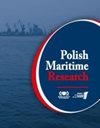Environmental Marine Degradation of PLA/Wood Composite as an Alternative Sustainable Boat Building Material
IF 2
3区 工程技术
Q2 ENGINEERING, MARINE
引用次数: 0
Abstract
IIn this study, which can be considered a contribution to the global effort to produce sustainable materials and to search new manufacturing methods for the boat building industry, the performance of a 3D printable polylactic acid and recycled wood (PLAW) composite was investigated under the simulated operational conditions of a boat. The wood used in the composite was yellow pine (Pinus sylvestris), a local wood widely used in boat building and 8% by weight in the composite. For the study, tensile and compressive strength tests were performed in both atmospheric and post-aging conditions, using composite samples produced by the additive manufacturing method. The durations of the accelerated aging before the experiments were one, two and four weeks. During these aging periods, water spraying, a salty fog environment and a drying cycle were applied at elevated temperatures and at equal time intervals, daily. The effect of wood additive on the composite and the joining efficiency of the components were also examined with scanning and optical microscopes. The performance of the obtained composite and the effects of aging on performance were measured using two different thermal analyses: differential scanning calorimetry and thermogravimetric analysis. From the results obtained, it can be seen that PLAW composite can be used in the manufacture of structural elements subjected to relatively low loads in boats. It is an option that will provide integrity in the future interior design of wooden boats.聚乳酸/木质复合材料作为可持续造船替代材料的环境海洋降解作用
这项研究可以说是对全球生产可持续材料和为造船业寻找新制造方法的一项贡献,研究人员在模拟船只运行条件下,对可三维打印的聚乳酸和回收木材(PLAW)复合材料的性能进行了调查。复合材料中使用的木材是黄松(Pinus sylvestris),这是一种广泛用于造船的当地木材,在复合材料中的重量占 8%。在研究中,使用增材制造方法生产的复合材料样品在大气和老化后条件下进行了拉伸和压缩强度测试。实验前的加速老化持续时间分别为一周、两周和四周。在这些老化期间,每天以相同的时间间隔在高温下进行喷水、盐雾环境和干燥循环。此外,还使用扫描显微镜和光学显微镜检测了木材添加剂对复合材料的影响以及各组分的连接效率。使用两种不同的热分析方法:差示扫描量热法和热重分析,测量了所获得的复合材料的性能以及老化对性能的影响。从获得的结果可以看出,PLAW 复合材料可用于制造承受相对较低负荷的船用结构件。在未来的木质船只内部设计中,这种材料将提供完整性。
本文章由计算机程序翻译,如有差异,请以英文原文为准。
求助全文
约1分钟内获得全文
求助全文
来源期刊

Polish Maritime Research
工程技术-工程:海洋
CiteScore
3.70
自引率
45.00%
发文量
20
审稿时长
>12 weeks
期刊介绍:
The scope of the journal covers selected issues related to all phases of product lifecycle and corresponding technologies for offshore floating and fixed structures and their components.
All researchers are invited to submit their original papers for peer review and publications related to methods of the design; production and manufacturing; maintenance and operational processes of such technical items as:
all types of vessels and their equipment,
fixed and floating offshore units and their components,
autonomous underwater vehicle (AUV) and remotely operated vehicle (ROV).
We welcome submissions from these fields in the following technical topics:
ship hydrodynamics: buoyancy and stability; ship resistance and propulsion, etc.,
structural integrity of ship and offshore unit structures: materials; welding; fatigue and fracture, etc.,
marine equipment: ship and offshore unit power plants: overboarding equipment; etc.
 求助内容:
求助内容: 应助结果提醒方式:
应助结果提醒方式:


